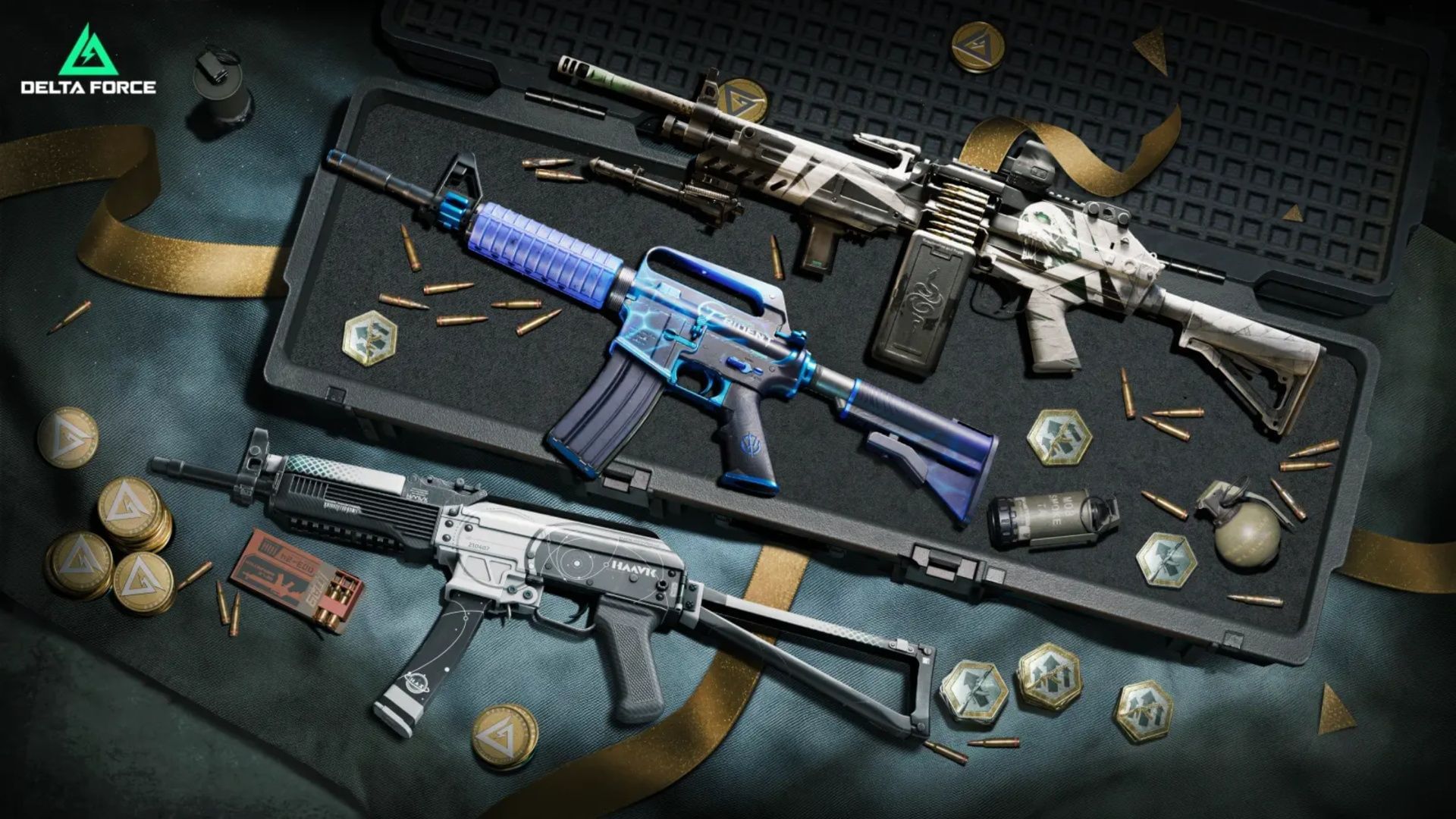Delta Force Operations is more than just a tactical shooter—especially when it comes to reviving your teammates in order to win a game.
If you want to give your team the upper hand, you need to learn the less obvious details of the revival system.
This complete guide breaks down the key revival tips every Delta Force medic needs to know
1. Bleed Timers: A Race Against Time
The most important part of reviving is the bleedout timer. This is the countdown that shows how long a downed player has before they’re gone for good. Here are the basics:
First Time Down: The timer starts at 50 seconds. While downed, you can crawl about 50 meters before the time runs out.
Upgrades: Improving your CSD (Combat Survival Device) and Black Site gear makes you stronger when downed. A fully upgraded CSD lets you crawl 10% farther (up to 55 meters).
Getting Downed Again: The timer gets shorter each time you’re knocked down. It drops to 40 seconds for the second time, and then stays at 25 seconds for the third time and every time after that. This happens even if you were revived successfully before.
Your Last Chance: If your operator has already been fully killed and brought back, any new knockdown will immediately start a 25-second timer. When that runs out, you enter the “final bleedout” state.
2. The Final Bleedout and Last Chance
After the first timer ends, the game adds a second chance with a big penalty:
Final Bleedout State: If no one revives you during the first timer, you enter a “final bleedout” state. Here, you have three minutes for a teammate to save you.
Can’t Move: You are stuck in place and totally reliant on your team.
The Penalty: If you are revived now, you come back with 20 less maximum health for the rest of the round.
Game Over: If no one revives you in these three minutes, you are out for the entire round.
3. How to Slow Down the Clock: Teamwork Saves Lives
Sometimes, a direct revive is too dangerous. There’s a little-known trick that every medic should use:
Carry Your Teammate: Picking up a downed teammate completely stops their bleedout timer. Whether they have 50 seconds or 25 seconds left, you can carry them as long as you need to find a safe spot to heal them.
The Limit: This trick only works during the first timer. Once a player is in the three-minute “final bleedout” state, that clock keeps counting down no matter what.
In short, smart use of the carry feature lets a medic move a hurt teammate out of danger before reviving them, a simple but often forgotten tactic.
4. Extraction Dynamics While Knocked
Here’s an important but rare situation that can happen during a raid:
Escaping While Down: If you are in the extraction zone when you get knocked down and your timer runs out, you will still escape successfully. This works even if a teammate is carrying you.
The Exception: This does not work if you are in the three-minute “final bleedout” state. If you are in this state, you cannot escape, even if a teammate carries your body into the extraction zone. Your body will be left behind when your teammates leave.
This is key for medics to know: sometimes, the best move is to carry a downed teammate to the exit to save them for the next round, but only if they haven’t entered the final bleedout state yet.
5. Sound Distances: Audible Danger During Revives
Reviving a teammate isn’t quiet. Enemies can hear it happening, so knowing how the sound works can save your whole squad.
Normal Hearing Range: The beeping sound of a revive can be heard by enemies up to 30 meters away.
Better Hearing with Gear: Some helmets can increase this hearing range by 50% (up to 45 meters). Special hearing stims can add another 10%, letting some players hear revives from almost 50 meters away.
The Strategy: Because of this, a smart medic should wait for gunfire or other loud noises to cover the sound, or move to a safer spot before reviving.
Crawl Away First: A downed teammate can crawl up to 50 meters away. If they do this before you revive them, you might be far enough to be out of most enemies’ hearing range.
Remember: Picking up a downed teammate also makes a sound, but it’s short and easier to hide with other game noises, unlike the long, constant beeping of a revive.
6. Revive Speed Modifiers: Weapons, Operators, and Perks
In Delta Force, some things can make it take longer to revive a teammate, which adds more risk.
Sniper Kills: If a teammate is taken down by a bolt-action sniper rifle, it will take you much longer to revive them.
The Nox Operator: If an enemy is playing as the Nox operator, anyone he knocks down or kills will also take longer to revive.
Here is a simple chart showing how these times stack up:
Normal Operators:
Knocked: 10 seconds
Final Bleedout: 15 seconds
If downed by a Sniper:
Knocked: 15 seconds
Final Bleedout: 22 seconds
If downed by Nox:
Knocked: 14 seconds
Final Bleedout: 15 seconds
If downed by Nox with a Sniper:
Knocked: 19 seconds
Final Bleedout: 22 seconds
7. The Best Medics: Stinger & Toxic
The Support operators, Stinger and Toxic, are specially designed to be the best at reviving.
Faster Revives: They revive teammates 2 seconds faster than other operators in almost every situation.
Revive While Lying Down: They can revive while lying prone (on their stomach). This keeps them hidden and safe. Other operators have to crouch, making them an easier target.
Stinger’s Special Ability: When Stinger revives a teammate from the “final bleedout” state, he removes the penalty! That teammate comes back with their full health, not the reduced amount. Plus, Stinger’s revives always bring a teammate back with 40 health instead of the usual 10.
Here’s how fast Stinger and Toxic revive:
Support Operators (Stinger & Toxic):
Knocked: 8 seconds
Final Bleedout: 12 seconds
Knocked by Sniper: 13 seconds
Final Bleedout by Sniper: 19 seconds
Knocked by Nox: 12 seconds
Knocked by Nox with a Sniper: 17 seconds.
8. Vision Mechanics When Reviving
This is a simple but important detail that many players miss:
Support Operators (Stinger & Toxic): When they revive, they can look around normally. They can turn to watch for enemies, which is a huge advantage in a fight.
Other Operators: When they revive, their view is locked. They are forced to stare down at their teammate, which blocks their view and makes it easy for enemies to sneak up on them.
9. Tempest: The Ultimate Solo Medic
Tempest is unique because she can get herself back up.
Self-Revive: When her special ability (ultimate) is active, she can revive herself after being knocked down.
Her Revive Time: For others reviving her, the timer is the same as a normal operator (it depends on what knocked her down).
How to Use Her: When she’s first knocked, she can crawl around for up to 50 seconds. She can choose the best moment to use her self-revive. If an enemy stops her while she’s trying, she will immediately go into the three-minute “final bleedout” state.
10. Practical Revival Tips and Strategies
Putting all these ideas together will make you a much better medic:
Revive During a Fight: The sounds of gunfire and explosions are the perfect cover for the loud beeps of a revive. Try to time your revives with these noises.
Keep Track of Lives: Pay attention to how many times your teammates have been knocked down. If someone is on their last life, prioritize getting to them, especially if you are playing as Stinger.
Know When to Leave: If you’re near the extraction zone, sometimes it’s smarter to just carry a downed teammate to the exit instead of trying a risky revive.




